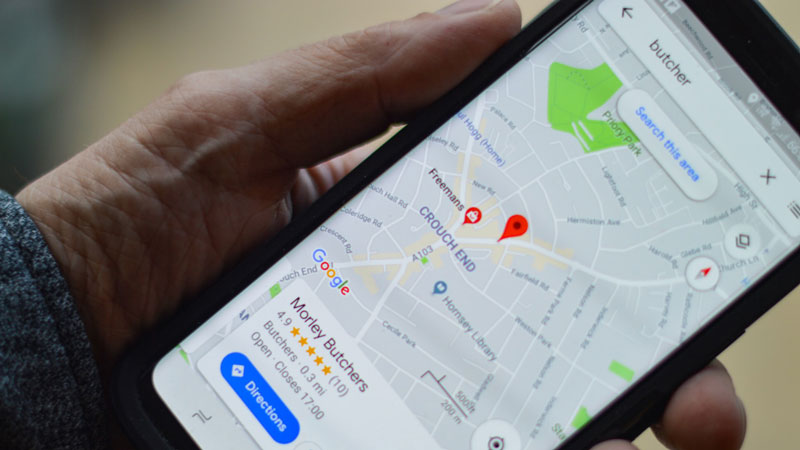Social media has emerged as a dominant force that influences our lives and impacts businesses on multiple levels. While it’s well-known for connecting people and fostering engagement, social media also presents a unique opportunity for businesses to enhance their online visibility and attract organic traffic. In this blog, we will delve into the concept of Social Media SEO, explore its definition, discuss best practices, and provide insights on how to leverage social platforms to boost your online presence.
What is Social Media SEO?
Social Media SEO refers to the process of optimizing social media profiles and activities to improve their visibility and rankings in search engine results pages (SERPs). While traditional SEO focuses on optimizing websites and web content, social media SEO concentrates on leveraging social media platforms to increase organic search visibility. It involves employing SEO techniques and strategies within social media platforms to increase brand exposure and enhance overall online performance.
Best Practices for Social Media SEO
By following these guidelines, you can optimize your social media profiles, create engaging content, and leverage the power of social platforms to enhance your online presence and attract valuable organic traffic. Let’s dive into these practices and discover how they can propel your SEO efforts to new heights.
1. Optimize Your Social Media Profiles
Ensure that your social media profiles are complete, accurate, and align with your brand. Use relevant keywords in your bio, description, and tags to increase the chances of appearing in search results.
2. Consistency in Branding
Maintain consistent branding across all social media channels. Use the same profile picture, cover image, and handle to establish brand recognition. Consistency enhances brand credibility and improves search engine rankings.
3. Keyword Research and Usage
Conduct thorough keyword research to identify popular and relevant keywords related to your business. Incorporate these keywords naturally in your social media posts, captions, and hashtags. This practice helps search engines understand your content better and improves the chances of appearing in relevant searches.
4. High-Quality Content Creation
Create valuable and engaging content that resonates with your target audience. Share informative articles, visually appealing images, captivating videos, and thought-provoking infographics. High-quality content encourages user engagement, attracts shares, and increases the likelihood of being linked to other websites.
5. Social Media Sharing Buttons
Integrate social media sharing buttons on your website and blog posts. This feature enables visitors to share your content easily across various social media platforms, leading to increased visibility and potential backlinks.
6. Build a Strong Social Media Following
Focus on building a genuine and engaged social media following. Encourage user interactions, respond to comments and messages promptly, and participate in relevant conversations. A strong following amplifies your reach and improves your social media SEO prospects.
7. Utilize Hashtags
Hashtags are powerful tools for discovery on social media platforms. Research and use relevant hashtags in your posts to increase the chances of being found by users who are interested in your niche or topic. Additionally, consider creating a branded hashtag specific to your business or campaign to encourage engagement and user-generated content.
8. Consistent Posting and Quality Content
Regularly post high-quality content that provides value to your audience. Consistency is key to keeping your followers engaged and attracting new ones. Use a mix of text, images, videos, and other engaging formats to capture attention and encourage sharing.
9. Monitor and Analyze the Performance
Regularly monitor the performance of your social media efforts. Utilize social media analytics tools to gain insights into user engagement, post reach, click-through rates, and other relevant metrics. Analyzing this data helps you refine your strategy, identify successful campaigns, and make informed decisions for future optimization.
How to Leverage Social Media for SEO
We will delve into practical strategies and techniques that can amplify your online presence, attract valuable backlinks, and drive organic traffic to your website. By incorporating these tactics into your social media marketing strategy, you can optimize your SEO efforts and achieve sustainable success in the digital landscape. Let’s discover how social media can become a powerful tool in your SEO arsenal.
- Share Your Content: Promote your website content, blog posts, and articles on social media platforms. By sharing valuable and optimized content, you increase the chances of it being shared by others, driving traffic to your website and enhancing your SEO efforts.
- Encourage User-Generated Content: Actively engage with your audience and encourage them to create and share content related to your brand. User-generated content serves as a powerful endorsement, boosts brand visibility, and contributes to improved search engine rankings.
- Social Signals and Backlinks: When your content gets shared and linked to social media platforms, it generates social signals and backlinks. These signals play a role in search engine algorithms and can positively impact your organic search rankings.
- Engage with Your Audience: Actively engage with your followers and respond to their comments, messages, and mentions. This interaction not only fosters a sense of community but also increases your visibility as your engagement appears in the feeds and notifications of others.
- Collaborate with Influencers: Partnering with influencers or industry experts can help expand your reach and attract new followers. Identify influencers who align with your brand and collaborate on content or promotions that expose your social media profiles to their audience.
- Cross-Platform Promotion: Promote your social media profiles across multiple platforms. For example, if you have a strong presence on YouTube, mention and link your social media profiles in your video descriptions or through annotations. Likewise, promote your social media handles in your email newsletters or on your blog.
- Paid Advertising: Consider using paid advertising options on social media platforms to reach a wider audience. Platforms like Facebook, Instagram, and Twitter offer targeting options that allow you to reach specific demographics or interests, increasing the likelihood of attracting relevant followers.
Conclusion
Social Media SEO is an integral part of any comprehensive digital marketing strategy. By optimizing your social media profiles, creating valuable content, and leveraging the power of social platforms, you can improve your online visibility, attract organic traffic, and boost your search engine rankings. Remember to stay consistent, engage with your audience, and regularly analyze your performance to refine your approach. Embrace the power of social media to enhance your SEO efforts and achieve long-term success in the digital landscape.





